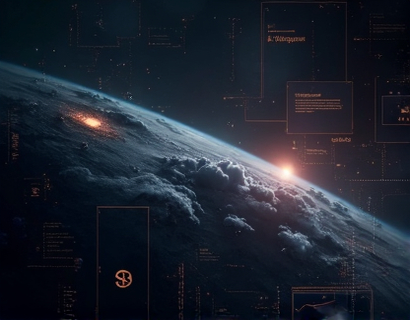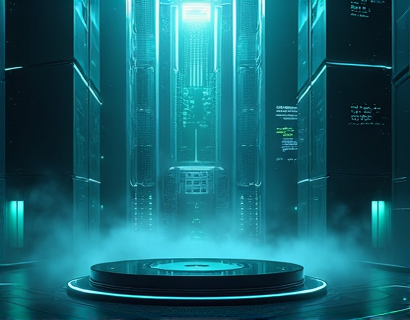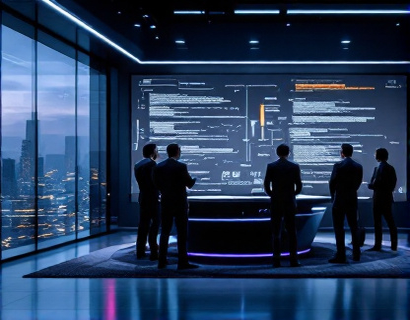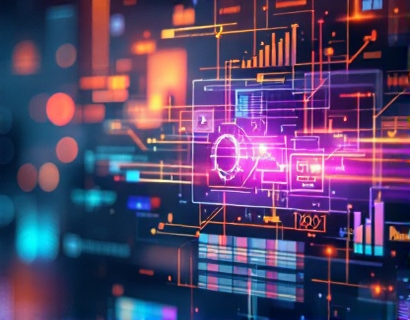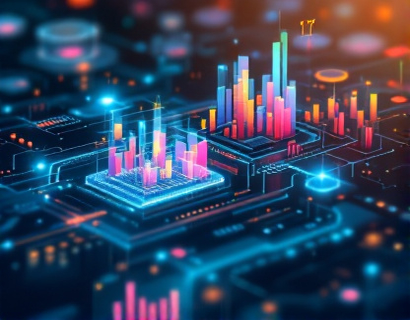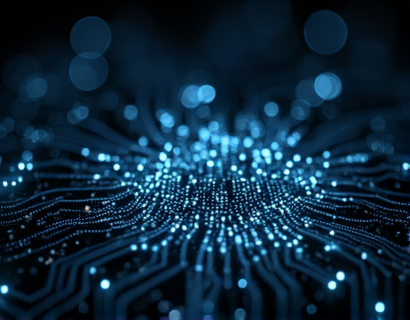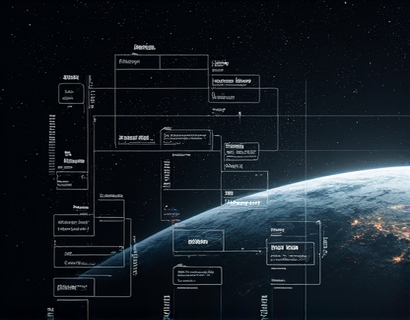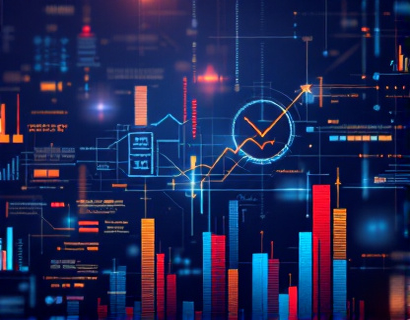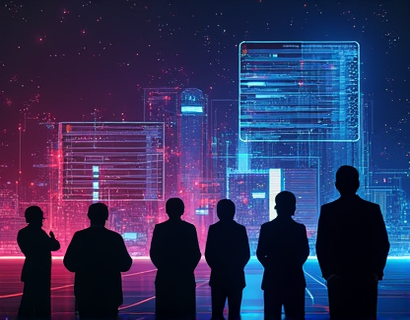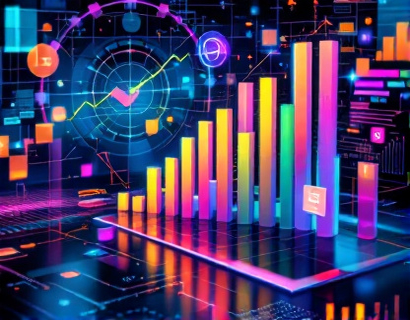Revolutionizing Decentralized Productivity: The Synergy of AI and Cryptocurrency
The intersection of artificial intelligence and cryptocurrency is giving birth to a new era of decentralized productivity tools. This fusion is not just an evolution but a revolution, transforming how tech professionals and early adopters approach app innovation and task management. The integration of AI with blockchain technology is creating next-generation solutions that promise to enhance efficiency, security, and accessibility in the digital workspace.
Understanding the Basics: AI and Cryptocurrency
To fully appreciate the transformative potential of AI and cryptocurrency in decentralized productivity, it's essential to understand the fundamentals of both technologies. Artificial intelligence, or AI, refers to the simulation of human intelligence processes by machines, particularly computer systems. These processes include learning, reasoning, and self-correction. AI technologies such as machine learning, natural language processing, and computer vision are rapidly advancing, enabling more sophisticated and autonomous systems.
Cryptocurrency, on the other hand, is a digital or virtual currency that uses cryptography for security. The most well-known cryptocurrency is Bitcoin, but there are thousands of others, each with unique features and use cases. Blockchain, the underlying technology of cryptocurrency, is a decentralized ledger that records transactions across multiple computers in such a way that the registered transactions cannot be altered retroactively. This technology ensures transparency, security, and decentralization, making it an ideal foundation for decentralized applications and services.
The Emergence of Decentralized Productivity Tools
The convergence of AI and blockchain has led to the development of decentralized productivity tools. These tools leverage the strengths of both technologies to create applications that are not only powerful and efficient but also resistant to central points of failure. Decentralized productivity platforms can operate without intermediaries, reducing costs and increasing control for users. AI enhances these platforms by automating complex tasks, providing intelligent recommendations, and ensuring seamless user experiences.
One of the key advantages of decentralized productivity tools is their ability to operate on a peer-to-peer network. This means that users can collaborate and share resources without relying on a central server. AI algorithms can optimize these networks, ensuring that resources are allocated efficiently and that tasks are completed swiftly and accurately. For tech professionals and early adopters, this represents a significant shift from traditional centralized systems, offering greater flexibility and control.
Enhanced Security through Decentralization and AI
Security is a paramount concern in the digital age, and the combination of AI and blockchain addresses many of the vulnerabilities present in centralized systems. AI can detect and respond to threats in real-time, analyzing patterns and anomalies to prevent breaches. Blockchain's inherent security features, such as immutability and transparency, further bolster the protection of data and transactions. Together, these technologies create a robust security framework that is difficult to compromise.
For instance, AI-driven security protocols can monitor blockchain networks for suspicious activities, automatically triggering alerts and countermeasures. This proactive approach to security is particularly valuable for businesses and individuals handling sensitive information. The decentralized nature of these systems ensures that even if one node is compromised, the overall network remains secure, minimizing the risk of widespread damage.
Streamlining Task Management with AI-Powered Decentralized Apps
Decentralized productivity apps powered by AI are revolutionizing task management for tech professionals. These apps can automate routine tasks, such as scheduling, data entry, and project tracking, freeing up time for more strategic work. AI algorithms can analyze user behavior and preferences to provide personalized recommendations, optimizing workflows and increasing productivity.
For example, an AI-powered decentralized task manager can integrate with various blockchain-based tools to create a seamless workflow. It can automatically assign tasks based on availability and expertise, ensure timely completion through smart contracts, and provide real-time updates to all stakeholders. The decentralized aspect ensures that no single entity controls the data, promoting trust and collaboration among team members.
Smart Contracts: Automating Agreements and Transactions
Smart contracts are self-executing contracts with the terms of the agreement directly written into code. They run on blockchain networks and automatically enforce and execute the terms when predefined conditions are met. When combined with AI, smart contracts can become even more powerful, adapting to changing circumstances and optimizing outcomes.
In the context of decentralized productivity, smart contracts can automate various aspects of project management. For instance, they can handle payment transactions based on the completion of milestones, ensuring that all parties are compensated fairly and promptly. AI can further enhance this process by predicting potential delays or issues and suggesting corrective actions, thus maintaining the smooth operation of projects.
Decentralized Identity and Access Management
Identity verification and access management are critical components of any productivity ecosystem. Decentralized identity solutions, powered by AI and blockchain, offer a secure and user-controlled approach to managing digital identities. Users can create and manage their identities on a decentralized network, granting or revoking access to applications and services as needed.
AI plays a crucial role in enhancing the security and usability of decentralized identity systems. Machine learning algorithms can analyze user behavior to detect and prevent fraudulent activities, while also simplifying the authentication process through biometric verification and other advanced methods. This ensures that only authorized users can access sensitive information and tools, maintaining the integrity of the decentralized productivity environment.
Collaboration and Communication in Decentralized Spaces
Effective collaboration and communication are essential for any productive workflow. Decentralized platforms are redefining how teams interact and collaborate, leveraging AI to enhance these processes. AI-driven chatbots and virtual assistants can facilitate communication, provide context-aware suggestions, and manage meetings, all while ensuring that data remains secure and decentralized.
For example, a decentralized communication platform can use AI to transcribe and translate conversations in real-time, breaking down language barriers and enhancing global collaboration. AI can also analyze communication patterns to identify bottlenecks and suggest improvements, ensuring that teams remain efficient and cohesive.
Challenges and Considerations
While the potential of AI and cryptocurrency in decentralized productivity is immense, there are several challenges and considerations to keep in mind. Scalability remains a significant issue, as blockchain networks can struggle to handle high volumes of transactions. However, ongoing developments in blockchain technology, such as layer 2 solutions and sharding, are addressing these challenges.
Another consideration is the user adoption curve. Decentralized technologies can be complex, and educating users about their benefits and usage is crucial. Providing intuitive interfaces and comprehensive support can help bridge the gap and encourage wider adoption. Additionally, regulatory compliance is an important factor, as the legal landscape for cryptocurrencies and decentralized applications continues to evolve.
The Future of Decentralized Productivity
The future of decentralized productivity, powered by AI and cryptocurrency, is bright and full of possibilities. As these technologies continue to mature, we can expect even more innovative solutions that further enhance efficiency, security, and collaboration. The integration of AI with decentralized systems will not only transform how we work but also redefine the concept of productivity in the digital age.
For tech professionals and early adopters, embracing these advancements can provide a competitive edge and open up new opportunities. By leveraging AI and blockchain, individuals and organizations can build more resilient, transparent, and user-centric productivity ecosystems. The journey ahead is exciting, and the potential for positive impact is vast.




